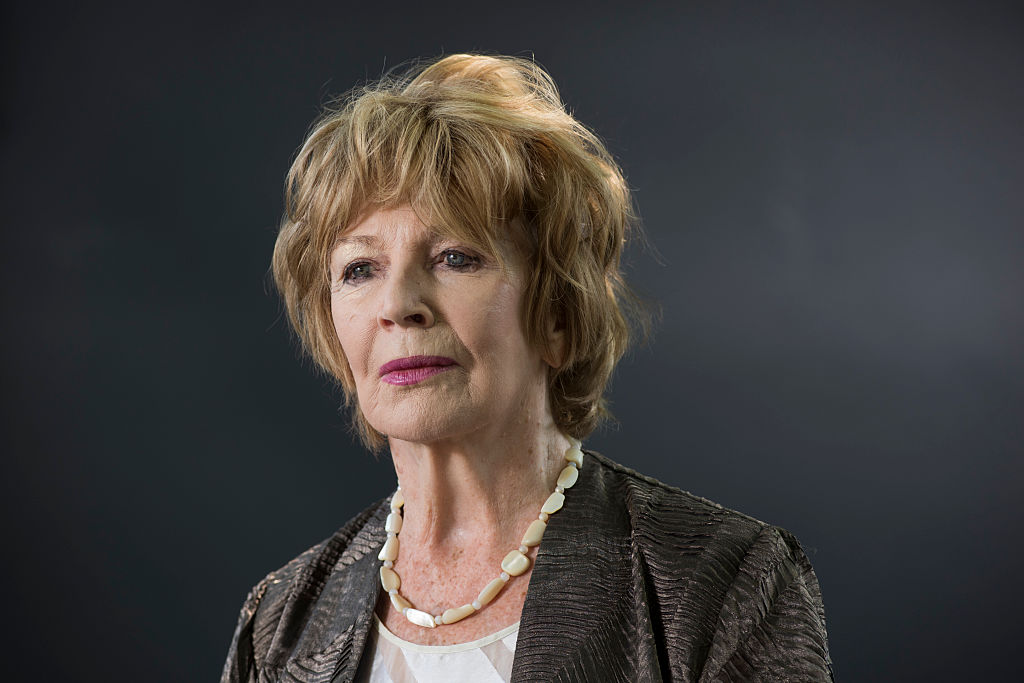A couple of months ago, I was reading Edna O’Brien’s Girls in their Married Bliss. Despite being so slim — no more 160 pages — it took me weeks to finish. Subjected to the clutter of my bag, the book began to fall apart: the black-and-white photo of a young O’Brien became detached from the orange spine, and the pages rearranged themselves in new sequences. In the end, I used what was left of the back cover to squash a lazy fly against my window.
The blame for my slow reading lies with me rather than its author. O’Brien — who died on Saturday at the age of 93 — wrote intense, wonderful, depressing novels about women’s lives: about mothers, dreams, marriages, and failures. Her first novel, The Country Girls (1960), was received so badly in her native Ireland that copies were burned and banned for their explicit content. After O’Brien’s mother died, she found a copy of her first book buried on the farm on which she had grown up. Every moment of colourful swearing by one of the two country girls, Baba — “You’ve a nose like a bloody petrol pump”; “Are you a bloody Protestant or what?” — had been obscured with black ink.
The Country Girls never really escaped its scandalous birth. O’Brien received threats, and was denounced from parish pulpits. It’s an oddity of a certain mid-century Irish repression — and cultural hysteria which is entranced by any mention of book-burning or disgrace — that it has been remembered for its sexual content. The content in question is remarkably thin on the ground. After Baba and Cait escape their convent school and move to Dublin, Cait — romantic, dreamy, and waiting for a hero to rescue her from her boarding house — is pursued by an older, married man she knows from her rural childhood. The scenes are more disturbing than sensual; his sex appeal derives from the respect he commands, and the car he drives.
O’Brien continued writing the lives of Baba and Cait in two more volumes published in the Sixties. The Lonely Girl covered their relationships and search for love in Dublin, while Girls in their Married Bliss saw Cait become Kate and the two girls relocate to “another slum […] in London”.
Of course, O’Brien’s real material was not gratuitous shock and sexual escapades, but something altogether more important: the interior lives of women, and their vulnerability to the external drama of life. Marriage, husbands, children — how all could fail to match up with high-flying dreams or, more prosaically, any idea of a happy life. Through Baba and Cait, and the women of her later short stories and novels, O’Brien wove fiction out of anxiety and disappointment. There are plots that turn on affairs which satisfy no one and upset everyone; and marriages which seemed to have been entered into just for something to do (“What did you marry a man like that for?” asks Kate’s solicitor. “It seemed to be what I wanted,” she replies).
One American reviewer spectacularly missed the point when he labelled O’Brien the “inventress of chick-lit”. Really, she gave her women’s stories a grand dignity, a seriousness which was radical for mid-20th-century Ireland. She lived up to a statement she made in a 1984 Paris Review interview, when she said that “a woman writer has a double dose of masochism: the masochism of the woman and that of the artist”.
Girls in their Married Bliss took me so long to finish, I think, because of this masochism. It reads like torture. Baba and Cait flirt with humdrum horror, and slowly submit to a sadism of washing up and drudgery; trading the temporary gloom of a boarding house for the terror of something much more permanent.
When I did finish it — with a stark scene of Kate’s sterilisation to eliminate “the risk of making the same mistake again” — I found myself reeling from the bleakness. Still naïve, I turned to the epilogue O’Brien wrote some two decades later. Here, as if to fully finish her off, O’Brien added a scene of Kate’s (perhaps intentional) death. But there’s something important in this bleakness. In losing O’Brien, we’ve lost a writer who knew to pay women’s lives the attention they deserved, and who gave the mundane its moment in the spotlight.










Join the discussion
Join like minded readers that support our journalism by becoming a paid subscriber
To join the discussion in the comments, become a paid subscriber.
Join like minded readers that support our journalism, read unlimited articles and enjoy other subscriber-only benefits.
Subscribe